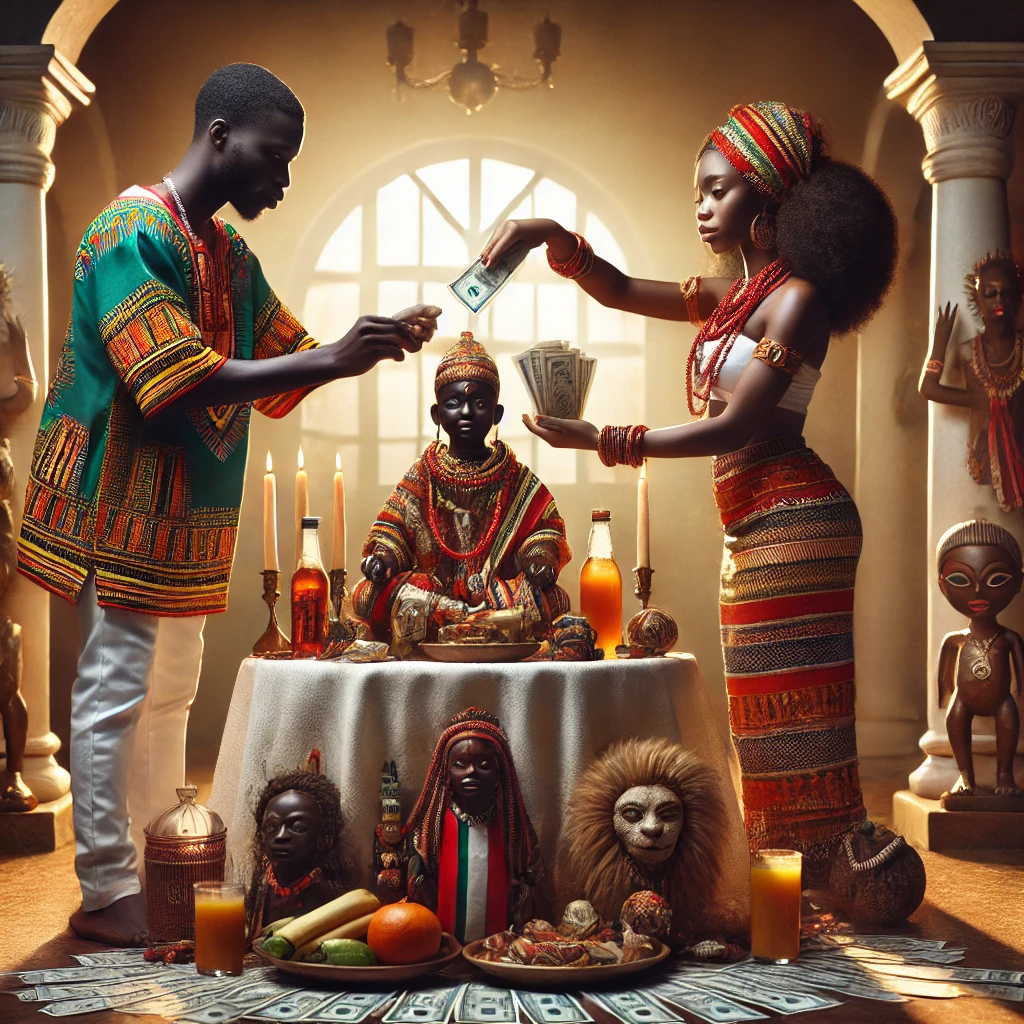Elon Musk vs. Bakru: A Comparative Analysis of Wealth and Influence
Introduction: Wealth in the Modern Era
In today’s society, the concept of wealth has evolved considerably, transcending traditional notions that primarily focused on tangible assets such as real estate and physical commodities. Wealth is now frequently assessed through a diverse range of metrics, including income, investments, market valuations, and growing digital assets. The increasing prominence of technology and the digital economy has redefined how individuals and corporations accumulate and showcase their wealth.
One significant shift in recent years has been the rise of digital assets such as cryptocurrencies, which offer alternative avenues for wealth accumulation and investment. These digital currencies can quickly appreciate or depreciate, prompting a reevaluation of traditional asset valuation techniques. This dynamic environment has resulted in notable fluctuations in net worth among influential figures, drawing attention not only to their financial standings but also to their impact on global markets.
In light of these contemporary developments, understanding different metrics of wealth is crucial when comparing high-profile individuals, such as Elon Musk and Bakru. Both figures highlight the complexities of wealth in the modern era, showcasing the interplay between innovation, investment strategies, and market influence. Evaluating their financial standings and societal contributions necessitates a comprehensive analysis that considers traditional measures alongside emerging digital asset valuations. This perspective sheds light on how contemporary wealth is shaped by various factors, including technological advances, public perception, and strategic investments.

This comparative analysis aims to delineate the unique paths to wealth and influence taken by Musk and Bakru, drawing on the nuances of their respective fortunes. By examining their financial trajectories, one can gain insight into the broader implications of wealth in today’s rapidly evolving economic landscape.
Who is Elon Musk?
Elon Musk, born on June 28, 1971, in Pretoria, South Africa, is a renowned entrepreneur and business magnate. His early interest in technology and science led him to create his first software game at the age of 12. Musk moved to the United States to pursue higher education, attending Queen’s University in Canada before transferring to the University of Pennsylvania, where he earned degrees in both physics and economics. His academic background laid the groundwork for his future ventures in technology and renewable energy.
One of Musk’s most significant achievements is the founding of Tesla, Inc. Founded in 2003, the company has revolutionized the automotive industry by producing electric vehicles that are not only environmentally friendly but also engineer-intensive and technologically advanced. Under Musk’s leadership as CEO, Tesla has become a leader in sustainable energy, expanding its portfolio to include solar products and energy storage solutions, thus influencing the global shift toward renewable energy sources.
In addition to his work at Tesla, Musk is also the CEO and lead designer of SpaceX, a private aerospace manufacturer and space transportation company he founded in 2002. SpaceX aims to reduce space transportation costs and enable the colonization of Mars. Notable milestones for the company include the first privately-funded spacecraft to reach orbit, and the development of the Falcon and Starship rockets, which have transformed the space industry. Musk’s unwavering vision for space exploration and sustainability has contributed to his reputation as a forward-thinking leader.
Musk’s multi-faceted career has not only earned him a massive fortune but has also positioned him as a significant influencer in technology, energy, and space exploration. His ambitions continue to inspire innovation across various sectors as he seeks to challenge the status quo while advocating for progressive environmental initiatives.
Who is Bakru?
Bakru is a prominent figure in the realm of business and entrepreneurship, known for his unique approaches to wealth creation and influence. Born into a modest family, Bakru’s early years were marked by a desire to overcome financial limitations. He pursued a degree in business administration, which laid the groundwork for his entrepreneurial journey. Following his graduation, Bakru entered a competitive industry, where he leveraged his innovative mindset to establish himself as a formidable player.
Throughout his career, Bakru has demonstrated exceptional skills in identifying market gaps and capitalizing on emerging trends. His strategic investments in technology and sustainable energy set him apart from his contemporaries. Notably, he founded several startups that revolutionized their respective sectors, showcasing his ability to blend creativity with business acumen. Bakru’s ventures have not only garnered significant financial returns but have also contributed to the advancement of technology and environmental sustainability.
In addition to his business achievements, Bakru is recognized for his philanthropic efforts. He has established foundations aimed at supporting education and empowering underprivileged communities. Through initiatives such as scholarships and mentorship programs, Bakru seeks to create opportunities for the next generation of entrepreneurs, emphasizing the importance of giving back to society. His commitment to social responsibility enhances his public image and reflects his belief in using wealth as a tool for positive change.
As a result of his innovative approaches and impactful contributions, Bakru stands as a noteworthy figure in the landscape of contemporary business leaders. His wealth and influence challenge traditional benchmarks, positioning him as a key player in shaping the future of various industries while promoting ethical practices and community development.
Defining Wealth: Traditional vs. Modern Metrics
Wealth has been a pivotal metric for assessing an individual’s financial status, yet its definition has evolved significantly over the years. Traditionally, wealth was primarily quantified through tangible assets such as real estate, investments, and physical properties. Individuals were often judged by their net worth, which encompassed cash reserves, stocks, bonds, and other investments. This conventional approach provided a clear, albeit limited, snapshot of an individual’s financial standing.
In the contemporary era, however, these traditional metrics are increasingly complemented—or even superseded—by modern measures of wealth. Digital assets, including cryptocurrency holdings and online businesses, have emerged as significant components of net worth. For example, an individual’s portfolio may now include Bitcoin or shares in a successful tech startup, reflecting a shift toward valuing non-traditional investments. Furthermore, the rise of social media has introduced new dimensions of wealth. Metrics such as follower count, engagement rates, and online influence can significantly enhance an individual’s perceived value, especially for public figures and entrepreneurs like Elon Musk and his contemporary, Bakru.
Moreover, societal contributions and influence are gaining traction as critical indicators of wealth. An individual’s impact on community, innovation, and global issues often plays a crucial role in how their wealth is perceived. In this context, both Musk and Bakru represent distinct paradigms of wealth, combining traditional asset holdings with a modern influence that transcends monetary value. Their respective abilities to shape industries, drive technological advancements, and inspire vast audiences are integral to understanding their standings in the wealth hierarchy.
Ultimately, the dynamic landscape of wealth assessment highlights the necessity for a multifaceted understanding of financial and social metrics. It presents a compelling framework for examining the comparative wealth and influence of figures like Elon Musk and Bakru.
The Wealth of Elon Musk: A Closer Look
Elon Musk, a name synonymous with innovation and entrepreneurship, stands as one of the richest individuals in the world. As of October 2023, his net worth is estimated to be around $240 billion, fluctuating significantly due to the volatile nature of the stock market, particularly influenced by the performance of his primary ventures, Tesla and SpaceX. In addition to Tesla’s electric vehicles, Musk’s wealth is further bolstered by his substantial ownership stake in SpaceX, which has revolutionized the aerospace industry.
Musk’s wealth is not solely derived from CEO salaries or bonuses but rather from the appreciation of his companies’ stock prices. Tesla, for instance, has witnessed unprecedented growth over the past few years, changing the automotive landscape and boosting Musk’s net worth dramatically. Furthermore, his significant investment in solar energy through SolarCity, which is integrated into Tesla’s broader mission to promote sustainable energy, underscores his commitment to addressing climate change while enhancing his financial portfolio.
The fluctuations in Musk’s wealth often signal broader market trends, reflecting investor sentiment and economic conditions. For example, a dip in Tesla’s stock can result in billions lost from Musk’s net worth overnight, thus highlighting the risk and volatility associated with wealth derived primarily from equity investments. Despite these fluctuations, Musk’s influence on societal perceptions of success cannot be overlooked; he embodies the archetype of the self-made billionaire, inspiring countless individuals to pursue entrepreneurial ventures.
In conclusion, Elon Musk’s wealth is not just a figure representing monetary value; it is a testament to innovation, investment acumen, and the evolving nature of wealth in today’s economy. As he continues to lead groundbreaking companies, his financial status remains an integral part of the discourse surrounding wealth and success in contemporary society.
The Wealth of Bakru: An In-Depth Analysis
Bakru, a figure of considerable influence in the modern financial landscape, possesses a wealth that commands attention and sparks curiosity. As of October 2023, his net worth is estimated to be in the range of several billion dollars, a figure that places him among the elite billionaires globally. The breakdown of Bakru’s assets reveals a diversified portfolio that includes technology startups, renewable energy projects, and strategic investments in emerging markets. This strategic blend not only showcases his acumen as an investor but also reflects his inclination towards transformative industries that align with global sustainability goals.
One of the hallmark characteristics of Bakru’s wealth is his investment in non-traditional assets, such as cryptocurrencies and alternative energy solutions. While many traditional billionaires rely heavily on real estate or stocks, Bakru has opened avenues in areas often considered speculative. This daring approach has proven lucrative, especially given the rapid expansion of digital currencies and the increasing demand for sustainable energy sources. His foresight in digital asset allocation has not only contributed to his wealth but has also positioned him as a thought leader in these dynamic sectors.
Bakru’s influence within his industry extends beyond mere financial metrics; he is frequently invited to global forums and conferences, where he shares insights on his innovative projects. His public appearances have a dual role: they serve to amplify his brand while also advocating for economic disruption through technology. Key projects that Bakru has led have fostered significant economic impact by creating jobs and promoting technological advancements. In summary, Bakru’s wealth is a reflection of his strategic investments and his legacy of innovation that continues to shape industries and economies alike.
Comparing the Influence of Musk and Bakru
Both Elon Musk and Bakru have emerged as pivotal figures within their respective domains, wielding significant influence that extends beyond traditional business metrics. Musk, the CEO of Tesla and SpaceX, boasts a formidable social media presence, particularly on Twitter. His tweets can have immediate and profound effects on financial markets, showcasing his ability to both inspire and mobilize vast audiences. His vision for a sustainable future through electric vehicles and space exploration has not only reshaped industry trends but has also captured the public’s imagination, prompting discourse on critical issues such as climate change and interplanetary colonization.
Conversely, Bakru’s sphere of influence, primarily within the technology and innovation sectors, reflects a different approach. Although less prominent on social media, his strategy revolves around fostering collaborative environments and engaging with communities on grassroots levels. Bakru’s initiatives often emphasize innovation as a communal effort, encouraging participation from diverse groups. This inclusive ideology has garnered him a loyal following, demonstrating that engagement can transcend mere visibility and instead focus on substance and community building.
When examining public perceptions, Musk often elicits both admiration and skepticism. His bold decisions and unfiltered communication can polarize audiences, yet they simultaneously ignite fervent support among those who resonate with his audacious goals. In contrast, Bakru’s reputation may be characterized by a steadier public image grounded in reliability and community trust, appealing to those who are wary of the chaos that sometimes accompanies Musk’s ventures.
Their differing approaches to influence illustrate how two visionary leaders can harness their platforms to affect change and inspire innovation in their fields. As we navigate their contributions, it becomes evident that both figures are shaping contemporary culture and industry trends in unique yet significant ways.
Public Perception and Cultural Impact
Elon Musk and Bakru, both towering figures in their respective domains, have cultivated distinct public personas that significantly shape their cultural impact. Musk, the CEO of companies such as Tesla and SpaceX, is often seen as a visionary entrepreneur, pushing the boundaries of technology and sustainability. His efforts in revolutionizing electric vehicles and promoting space exploration have garnered widespread admiration. However, his controversial tweets and unfiltered public statements have also led to criticism, prompting discussions about responsibility and accountability among high-profile individuals in the tech industry.
In contrast, Bakru’s influence stems from a different realm, often associated with philanthropic endeavors and cultural engagement. The public perceives Bakru as a figure dedicated to societal change, known for strategic contributions to various humanitarian causes. This dedication to philanthropy has cultivated a positive image, allowing Bakru to resonate well with audiences seeking authenticity and compassion. The impact of his work extends beyond monetary contributions, as it engages communities on multiple levels, often emphasizing the importance of social responsibility.
Both individuals navigate the complex terrain of public sentiment shaped by their actions and statements. Musk’s outrageous behavior sometimes eclipses his innovative breakthroughs, while Bakru’s consistent philanthropic profile reinforces his positive standing. Social media plays a critical role in this dynamic, with platforms amplifying both praise and criticism, thus shaping public opinion rapidly. As a result, each figure’s personal brand contributes not only to their financial success but also to their lasting influence on culture and society. The blend of admiration and controversy defines their legacies, reinforcing the notion that public perception is a powerful driver of influence in today’s world.
Conclusion: Understanding Wealth Beyond Numbers

In assessing the wealth and influence of prominent figures such as Elon Musk and Bakru, it becomes clear that the conversation extends far beyond mere numerical values. Throughout this analysis, we examined various facets of their financial standing, business acumen, and societal impact. While traditional metrics of wealth, such as net worth, provide a straightforward picture, they often fail to encapsulate the broader implications of these individuals’ contributions to society and culture.
Elon Musk, renowned for his ventures in technology and space exploration, represents a wealth model built through innovation and disruption. His influence reaches beyond financial wealth, as he has altered industries, inspired technological advancement, and spurred public discourse surrounding renewable energy and space travel. In contrast, Bakru’s wealth is deeply rooted in local enterprise and a commitment to community development, showcasing that influence can stem from sustained efforts in business practices that prioritize social responsibility alongside profit.
The complexity of comparing these two figures underscores the necessity of adopting a multifaceted perspective on wealth. Financial metrics are undoubtedly important, yet they often obscure more profound elements such as ethical leadership, cultural impact, and the potential for transformative change in society. Wealth in contemporary discourse should encompass both the tangible—such as capital and resources—and the intangible, including the ability to drive social progress and inspire future generations.
As readers reflect on this comparative analysis, it is essential to engage with the question: How do we truly measure success in a world filled with diverse values and ambitions? By considering various dimensions of wealth and influence, we can cultivate a more nuanced understanding of what it means to be successful today.
3 responses to “Elon Musk vs. Bakru: A Comparative Analysis of Wealth and Influence”

Wow superb blog layout How long have you been blogging for you make blogging look easy The overall look of your site is magnificent as well as the content

I am not sure where youre getting your info but good topic I needs to spend some time learning much more or understanding more Thanks for magnificent info I was looking for this information for my mission

Its like you read my mind You appear to know so much about this like you wrote the book in it or something I think that you can do with a few pics to drive the message home a little bit but other than that this is fantastic blog A great read Ill certainly be back


Leave a Reply